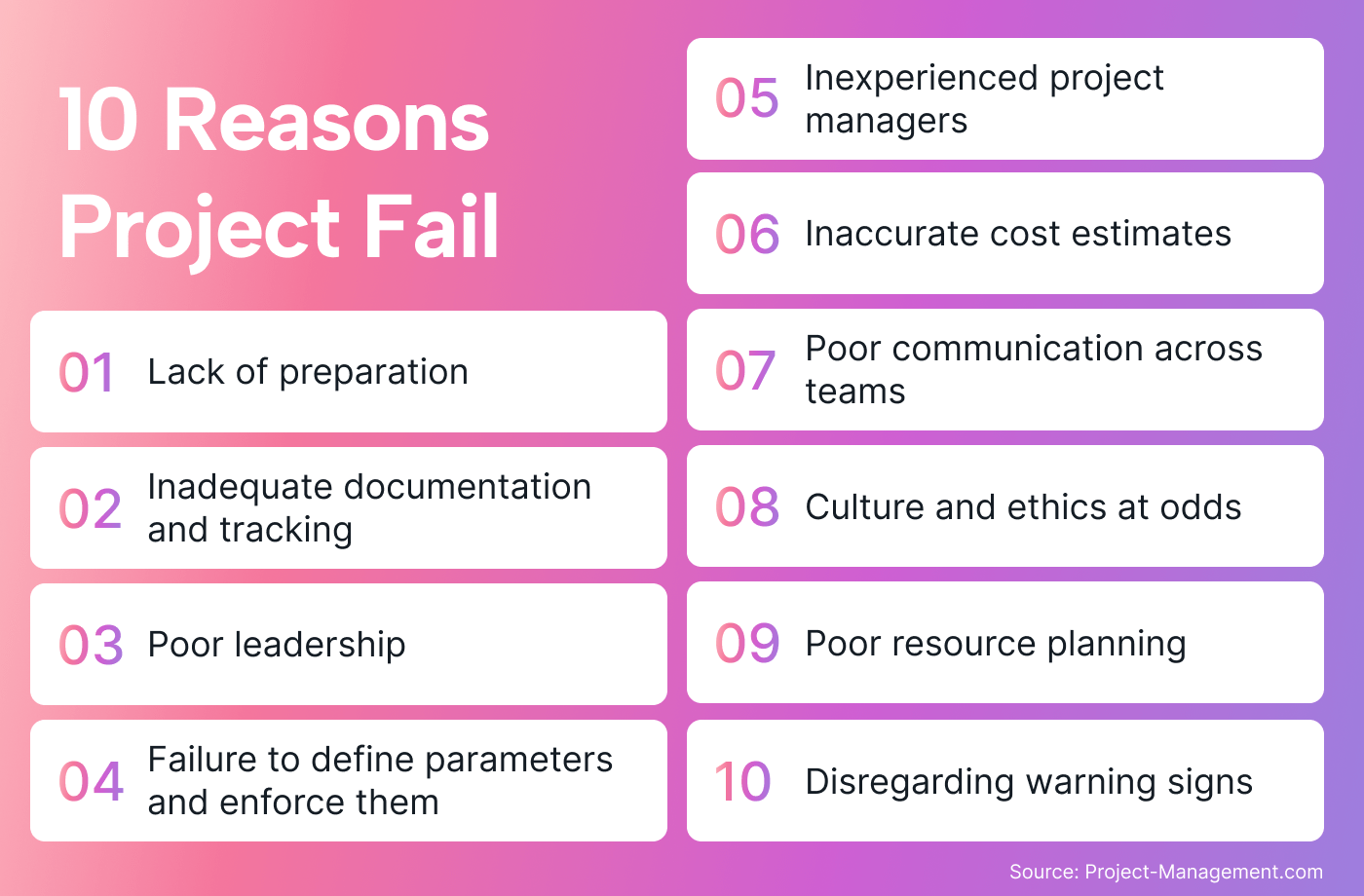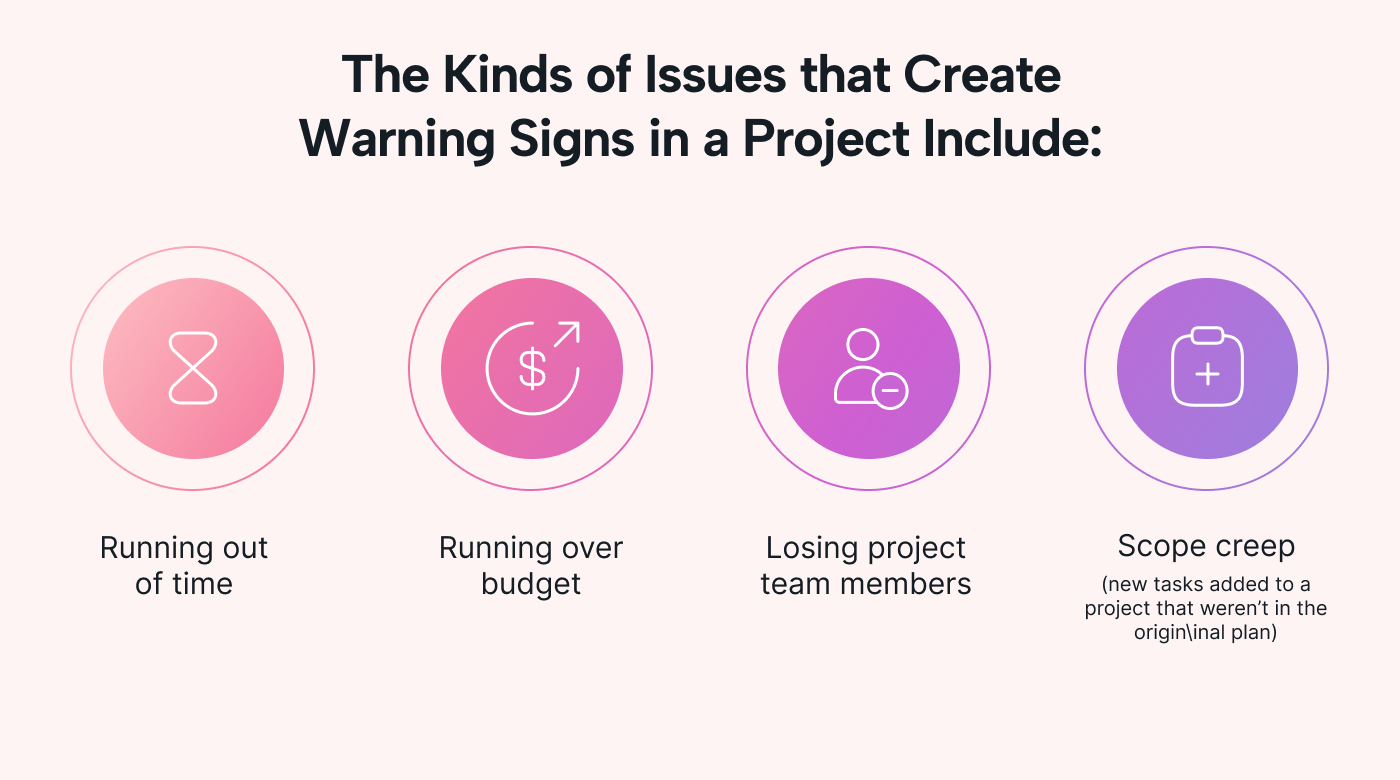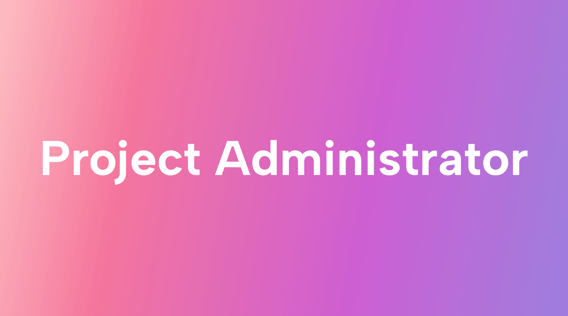An astonishing number of projects fail — whether that’s not meeting all the project goals, coming in over budget, missing the deadline, or all three. A robust recent discussion on the Project Management Institute (PMI)’s Project Management Central forum suggests the number is between 65% and 75% of projects. The big question is, why do they fail?
The PMI provides ten reasons for the high rates of failure. What’s interesting is that drilling down into those reasons leaves us with an easy way to make your project one of the 25-35% that are successful: Appoint a project administrator or coordinator.
Whether you’re a business owner or project manager who’s watched projects struggle, or you’re interested in a career as a project coordinator, this article will help you understand why project administration is essential.
What is a project administrator?
Indeed.com provides valuable insight: “A project administrator aims to support the project team and manager.” It adds that the primary role is to plan and coordinate a project or program, which is also why the term project or program coordinator is used.
What does a project administrator do?
A project administrator performs several specific roles that can, at times, overlap with each other:
- Communicating with contractors
- Coordinating and scheduling project meetings
- Making sure that project materials are always available
- Monitoring and tracking any changes in regulations
- Visiting the project team on-site
- Preparation and distribution of project reports to stakeholders
- Tracking outcomes and monitoring the project schedule
- Collecting, processing, and analyzing project data
- Helping the project manager with the project plan and budget
- Producing, managing, and altering documentation, including contracts
- Providing daily support to the project team.
Why do you need a project administrator?
The most significant benefit to any business owner or project manager of having a project coordinator is that they’ll free you up to provide leadership and make informed decisions. Let’s face it: you’re probably far too busy to take all the meeting notes (much less follow up on them).
You also don’t have time to keep track of all the statistics and administrative details on every project or want to take the time to figure out your project management software.
So, the answer to your dilemma is a project administrator — like an executive assistant, but one who specializes in coordinating project activities. This person will support you and your project team by taking minutes, actioning them, managing worker and project scheduling, and updating project documentation.
These activities will also include:
- Meeting administration
- Process documentation
- Preparing contracts
- Creating and editing workflows
- Sharing documents with stakeholders and internal teams
- Recording project progress and performance metrics
- Recording project budgets and expenditures
- Documenting meetings
- Maintaining and updating a project calendar
- Processing purchase orders and invoices
- Task tracking
- Resource management and budgeting
 |
Introducing the Project Management Office (PMO)
A single project coordinator would generally be adequate on relatively small projects involving only a few stakeholders, subject matter specialists, and team members. They’ll keep everything on track by freeing up the business owner or project manager to focus on the more strategic elements of the project.
PMOs are also valuable for organizations that run many projects. If you’re implementing software solutions, for example, you could have a lot of projects going on at any time. Then, it makes sense to centralize project administration or coordination in a single place.
This is also true of larger projects that involve a lot of people and many moving parts. You may need more than one person to keep track of it all. You might need a whole team working out of the PMO.
How this helps your business or project
In a world where so many projects fail, it’s worthwhile to consider how we define success. The classic definition of project success relies on three metrics at completion: on time, within budget, and to scope.
But a paper presented at a PMI Research Conference, back when people still took the trouble to physically attend conferences, breaks down success criteria into a lot more detail. It defines five kinds of metrics in the multilevel framework of project success: process, project management, product, business, and strategic.
It gets quite complicated and deals with everything from the processes, methods, tools, and techniques used to the strategic advantage gained from the project. That’s great for a complex project involving millions of dollars, but you might want your project administrator to measure only some aspects of the framework for your project.
Project administrators pay for themselves
Interestingly, cost is the biggest reason people avoid bringing an administrator or coordinator onto a project. This is ironic because one of the primary responsibilities of any project coordinator is to manage and control the project's costs. This will usually reduce costs or, at least, stop the project from over-shooting its budget.
The reality is that project teams are often focused on the next task, the next deliverable, and the next milestone. Team members often see administrative tasks like recording new findings and decisions as an unnecessary waste of energy.
 |
And that’s very often when projects fail — unless you have a project administrator taking care of that awkward administration.
So, you want to be a PA/PC?
The best thing about this job is that you can become a project administrator without formal qualifications. At the same time, some business administration qualifications or project experience may be beneficial. Strong computer literacy and office administration skills are essential.
What you need to be a project coordinator
The key is the word administrator (or coordinator). It implies someone with good organizational skills, strong attention to detail, and excellent communication skills. You should have great interpersonal and behavioral skills and tick most of these boxes:
- Be able to work in a team and independently
- Be excellent at time management
- Have great attention to detail and accuracy
- Have strong oral and written communication skills
- Have experience with project management software
- Be very good at prioritizing tasks
- Have superb organizational capabilities
- Be able to self-motivate
- Be eager to learn new things.
Documentation is king
You’ll need that attention to detail most with project documentation, which is usually the primary responsibility of a project coordinator. It’s also often considered the most critical part of any project and is just as often the overlooked part of project management.
Project administrators add the most value by setting up or using existing communication mechanisms to take the administrative load off team members. For example, team members could use Slack, WhatsApp, Signal, or text messages instead of providing detailed progress reports by email to keep the project coordinator in the loop.
That would ensure that your project status report doesn’t lag behind project progress and is as up-to-date and accurate as possible.
How to become a project administrator
Interestingly, most project administrators don’t start out seeking that role. Generally, they are on the periphery of a project and either spot a need they can fill or are asked to help with something. Before they know it, they’re sucked into the project and find a whole new career path.
But that isn’t the only way. There are formal qualifications that you can obtain. The PMI Project Management Professional (PMP) certification is one of these and is not too difficult to obtain.
 |
It’ll also qualify you as a project manager, but you need that knowledge to be an effective coordinator. You can do nearly all of it all online and then take the 180-question exam. You can also take the more introductory CAPM certification and after gaining some experience, go for the PMP certification.
Not ignoring the warning signs
Another critical role a project administrator fills is to monitor project health and be on the lookout for red flags. Anything that could affect the completion of the project on time and within budget is something you must bring to the project manager's attention.
And you must heed these warning signs and act on them, often rapidly. Consider, for example, that a particular team member is having trouble completing his tasks on time. Something like that can have a knock-on effect on the whole project.
To prevent that eventuality, your project manager would need to step in. That team member might need assistance, more resources, or you might have to replace them with someone better able to handle those tasks. These are strategic elements of the project that might be missed without a project administrator.
Make your project administrator and team even more productive
It’s quite possible that you spotted more areas where the presence of a project administrator could make a positive contribution to your project. But even if you didn’t, the message is unmistakable: it can be a critical role that can swing the project’s pendulum from probable failure to likely success.
Another important message from this analysis is that a project administrator needs the right tools to do the job properly. One of the best tools is Motion’s AI-powered project management app, which can help you and your project coordinator to make your whole project team more efficient and productive.
That technology can effectively provide you with a 13-month year. Now, who couldn’t use that? Sign up today for Motion’s seven-day free trial.





